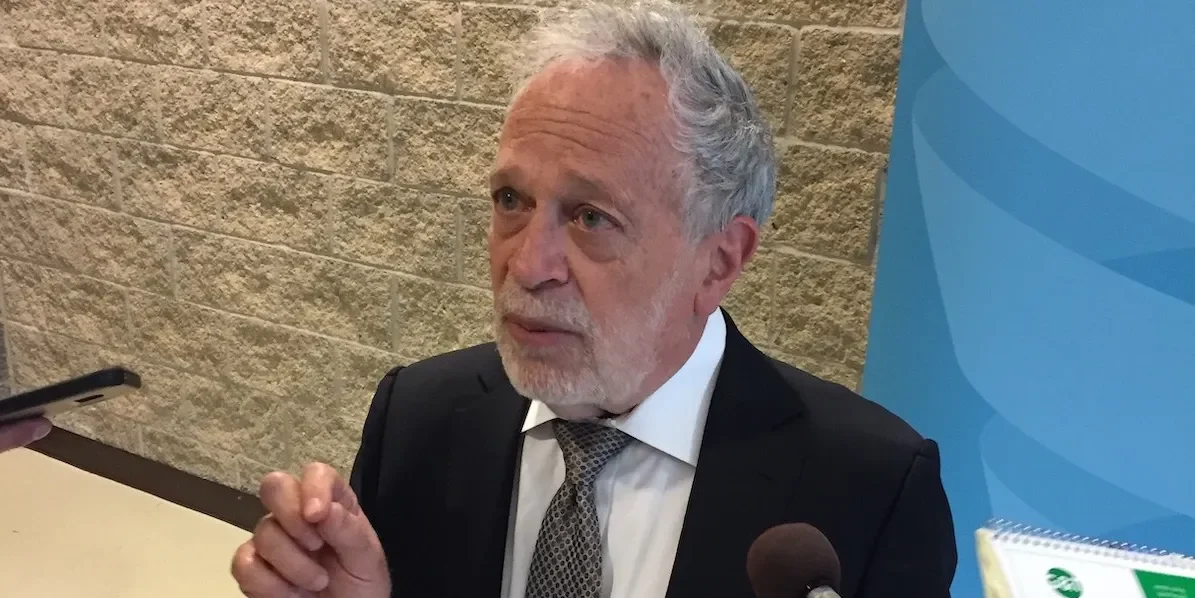Now that Canadians have been given a one-month reprieve from President Trump’s threatened arbitrary 25 per cent tariffs, it’s safe to assume media and politicians north of the world’s longest undefended border will quickly revert to old bad habits.
After a brief, uncomfortable stab at appearing to be a team player, we can probably expect federal Conservative Leader Pierre Poilievre to get back to complaining about how “Canada is Broken” sometime today.
Postmedia’s Alberta political peanut gallery sprang into action with comedic speed in response to Trump’s unexpected flip late yesterday, which as surely as night follows day will have flopped back to new threats as the beginning of March approaches.
“From traitor to saviour – Smith’s plan was crucial in staving off tariffs,” cheered the headline over Calgary Herald’s Don Braid’s effort at restoring Smith’s self-tarnished reputation.
“Trudeau is no hero – he finally did what Trump and Danielle Smith wanted,” booed the headline over Calgary Sun scribbler Rick Bell’s contribution to the official Postmedia narrative.
Links are provided in the event readers wish to read the entire columns, but, really, you can spare yourselves the effort. The headlines speak for themselves and, alas, they do not reflect reality.
Braid and Bell’s efforts notwithstanding, history is unlikely to absolve Smith.
After all, one of President Trump’s favourite bullying techniques is the bait-and-switch, and, having squeezed a few concessions out of Canada and Mexico that he can brag about to his supporters, he will soon switch to new demands. Indeed, he already has … U.S. banks must come to Canada! (Never mind that they’re already here, as if reality had anything to do with anything the man says.)
As Robert Reich wrote in his Substack column, the point of Trump’s bullying is the show. “Look behind what’s happening and you’ll see that Trump is employing two techniques to gain more power than any U.S. president has ever wielded,” the former U.S. Secretary of Labour in the Clinton Administration wrote.
The first is to show he can mete out huge punishments and rewards, whether or not they’re justified. “It’s a show of strength.”
The second is to keep everyone guessing. “What makes an abusive parent or spouse, or an abusive dictator, or Trump, especially terrifying? They’re unpredictable. They lash out in ways that are hard to anticipate.”
Dr. Reich continued: “What’s next? Who knows? That’s the whole point. … The practical consequence is that an increasing number of so-called ‘leaders’ – in the private, public, and non-profit sectors, and around the world – are telling their boards, overseers, trustees, or legislatures: ‘We have to give Trump whatever he wants and even try to anticipate his wants, because who knows how he’ll react if we don’t?’”
This is exactly what Smith has demanded of the prime minister and what he has at least in part delivered. Canada will be weaker for her effort and the division she has sown. And the problem is, it’ll all change again tomorrow, and we’ll give up a little more.
Indeed, as Trump has proved, the United States is now incapable of making and keeping almost any agreement. As soon as we have renegotiated the latest “free trade” deal, we will be presented with new demands.
Trump is going to say, as comedian Billy Connolly put it in his famous skit about old-time British labour leaders: “I want it now! I want it yesterday! And I want f*’n’ more tomorrow! And the demands will all be changed then, so f*’n’ stay awake!”
Canada needs to stay awake.
A good place to start, I suppose, might be to eliminate internal trade barriers, a solution trotted out by Canadian politicians of all stripes since Trump was returned to the White House.
Sadly, that won’t be as easy as Poilievre makes it sound. For one thing, if you want to truck hay from Alberta to British Columbia, and B.C. says you’ll have to unload your truck and repack it to B.C.’s standards, is that a safety regulation or a trade barrier?
Section 121 of the Canadian Constitution Act, 1867, says “All Articles of the Growth, Produce, or Manufacture of any one of the Provinces shall, from and after the Union, be admitted free into each of the other Provinces.”
You’ll often read this described as meaning it requires free trade between provinces.
The interpretation of the courts since the 1920s, though, has been that this means only that section 121 bars the levying of customs duties, tariffs in other words, on goods moving between provinces.
And whether Poilievre likes it or not, Canada remains a federation – although the tech-bro coup engineered by Trump’s billionaire supporters south of the 49th Parallel shows that it may be possible to ignore or even discard constitutional limits, or perhaps entire constitutions. (In that event, what do U.S. soldiers who have sworn to uphold the Constitution do? We’ll see, I guess.)
But as long as Canada is a federal state as now constituted, Ottawa lacks the jurisdiction to impose free trade, Poilievre’s promises notwithstanding. And don’t imagine Alberta won’t scream about it if Ottawa tries.
So while Canada’s provinces may feel the need for freer trade right now, we can be confident that as things settle down in the Excited States – as is bound to happen eventually – provincial enthusiasm for free trade between provinces will wane too.
Don’t expect anything like that to be possible at Trump speed, no matter who our prime minister is.



